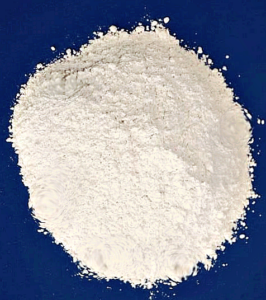During the first few weeks of August 2017, testimony began in the California trial regarding the carcinogenic properties of Johnson & Johnson’s (J&J) talcum powder-based products. Plaintiff Eva Echeverria testified about her five decades of talcum powder product use for feminine hygiene. The use of talc in this manner allows particles to travel to the ovaries, where they cultivate cancer.
Echeverria has terminal ovarian cancer and was given  six months to live in January. The serious nature of her illness led to an expedited trial date and her being the first plaintiff to go to trial out of hundreds in the consolidated litigation in California against J&J and its talc supplier, Imerys Talc America. In four of the five already completed St. Louis trials, the combined plaintiffs’ verdicts totaled over $300 million.
six months to live in January. The serious nature of her illness led to an expedited trial date and her being the first plaintiff to go to trial out of hundreds in the consolidated litigation in California against J&J and its talc supplier, Imerys Talc America. In four of the five already completed St. Louis trials, the combined plaintiffs’ verdicts totaled over $300 million.
At no point in her lifetime of talcum powder use did Echeverria see a warning label on the products — she continued to use them after her 2007 cancer diagnosis until she saw a startling television announcement in 2016. In videotapes of her previous depositions that were played for the jury, Echeverria said:
I stopped using it because I saw something on TV about a woman who died as a result of ovarian cancer and she had been using Johnson & Johnson baby powder. I thought, I use Johnson & Johnson baby powder and I’ve been diagnosed with ovarian cancer, and I’m still using it.
She also told the jury about the current effects of her terminal illness, including pain, loss of sleep and balance, fatigue, nausea, and headaches.
Epidemiologist Jack Siemiatycki of the University of Montreal and McGill University, who studies ovarian cancer, also testified on the plaintiff’s behalf. He contributed to the International Agency for Research on Cancer’s 2006 monograph, which labeled talc a “possible human carcinogen.” Siemiatycki explained that in the years following this report, his opinion has altered — he now “thinks that it is more likely than not that talc can cause ovarian cancer,” LAW 360 reports (law360.com). Siemiatycki discussed a 2013 study of the histories of over 8,500 women as one of the causes of his strengthened opinion on talc’s carcinogenic properties.
As Echeverria’s attorney, Allen Smith of the Smith Law Firm, pointed out in his opening statements, J&J has long been aware of the serious health risks of using talc for feminine hygiene, but failed to warn its customers out of concern for potential loss of profits and damage to its public image.
The Miller Firm is presently accepting clients who developed ovarian cancer after using Johnson & Johnson’s Talcum Powder. If this happened to you, please visit our Talcum Powder Lawsuit page, where you can request a free consultation. Or, please call the Miller Firm at 1-800-882-2525.
